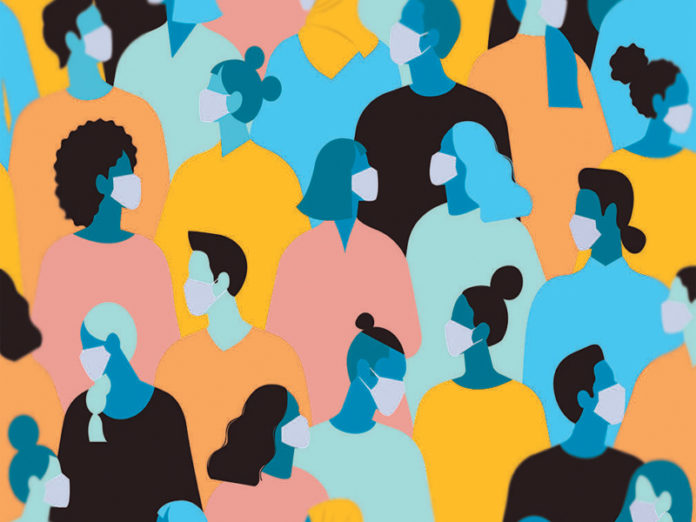As the COVID-19 pandemic spreads, STOP (Stopping Tobacco Organizations and Products), a global tobacco industry watchdog,released the following statement urging governments and civil society to hold tobacco companies accountable for the burden they have placed on people and health systems:
“Tobacco companies almost certainly have made the COVID-19 pandemic worse. Decades of relentlessly marketing and selling their toxic, addictive products have weakened the health of millions of people around the world.The ensuing cost of treating tobacco-related diseases puts healthcare systems under enormous pressure.
Evidence shows that smokers, in general, are more at risk from lung infections like pneumonia, flu and tuberculosis.Smoking also weakens the immune system and is a leading cause of non-communicable diseases such as cardiovascular disease, chronic respiratory diseases and cancer. Early studies signal that smokers and people with non-comnmunicable diseases who contract COVID-19 may experience more progression and worse outcomes.The World Health Organization has advised that even the physical act of smoking can make smokers more vulnerable to COVID-19 because of the risk of increased hand to mouth contact, and potentially contaminated products.
As millions of tobacco users contend with smoking-related illness and potentially worseCOVID-19 outcomes, tobacco companies continue to undermine government attempts to halt cigarette sales and promote quitting. In countries like Bangladesh and Pakistan,for example,the tobacco industry has successfully achieved exemptions to keep making and selling their products.A factory owned by Philip Morris Brazil has even increased production.
Even before the COVID-19 pandemic, tobacco placed an enormous burden on health systems around the world. A 2018 World Health Organization study estimated that $422 billion in health costs were due to smoking in a single year.Now, as health care systems scale up capacity for the rising number of COVID-19 patients and some governments prepare to re-open their economies, inadequate public health investment and infrastructure will need even more funding. The prognosis is worse for poorer countries: The Economist reported that per capitahealth spending in Pakistan, for example, is one two-hundredth the level of that in the United States.
Yet tobacco companies are reaping extraordinary profits. According to Corporate Accountability International, the top five transnational tobacco companies made $35 billion in profits in 2016.
Philip Morris International alone, reported net income of $7.1 billion in 2019.
It is our view that government should make tobacco companies pay for the damage smoking caused before the pandemic and which it continues to cause as the world addresses COVID-19.Governments have a number of options:
- Increase tobacco excise taxes: Tobacco taxes are among the most effective mechanisms to reduce tobacco use and raise government revenues. In a majority of low and middle-income countries, tobacco taxes remain low and tobacco products remain affordable. For example, the United Kingdom raises more than GBP 9 billion in tobacco excise taxes and the Philippines is using tobacco taxes to fund universal health care.
- Liability: Governments that have ratified the Framework Convention on Tobacco Control, a global treaty, have the power to hold tobacco companies financially responsible for their abuses through administrative, civil and criminal liability regimes mechanisms. Healthcare cost recovery efforts can yield much needed funds to support health systems.For example. tobacco companies have been made to pay at least $205 billion to the U.S. government. The government of Brazil is one of the latest to pursue legal action; it issuing Philip Morris International and British American Tobacco over compensation for tobacco-related diseases.
- Increase the cost of selling tobacco:Governments can levy fees on tobacco companies to fund cessation services. The World Health Organization suggests such feesmay include:
o Tobacco manufacturing fees
o Import licensing fees
o Product registration fees
o Tobacco selling licenses for distributors and retailers
o Noncompliance fees levied on the tobacco industry and retailers, such as administrative monetary penalties
o Annual tobacco surveillance/control fees for the tobacco industry and retailers.
- Eliminating preferential treatment and loopholes: Tobacco companies receive tax breaks, exemptions and preferential treatment in some countries. For example, Cambodia waived duties on tobacco leaves exported to Vietnam for registered farmers producing more than 3,000 tons of tobacco.
Tobacco companies have been accused of engaging in “shameful publicity stunt[s]”during the COVID-19 pandemic. They offered ventilators, masksand waterto health ministries and made donations to charities. These token gestures pale in comparison to the damage caused and the profits extracted at the expense of individuals and governments.
The human costs of the COVID pandemic and the tobacco epidemic are immense and the financial costs of health care, economic recovery and investments in better public health will soon come sharply into focus. Governments have the power to promote quitting through effective policies, and they can definitely make tobacco companies pay for the harm they have caused before and during the pandemic.”






